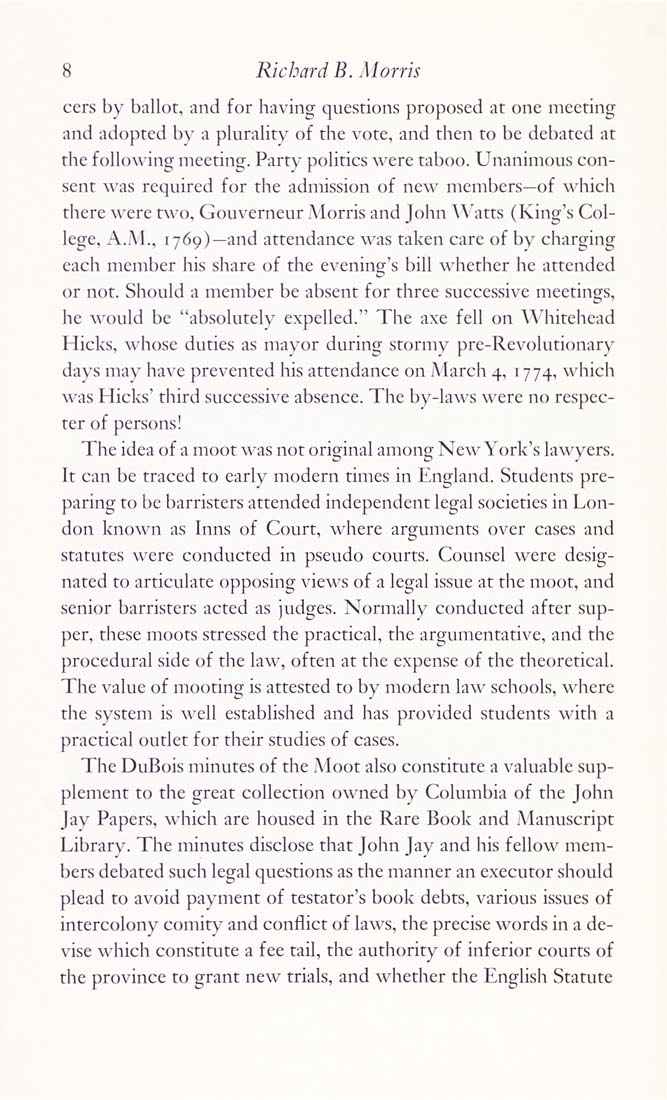Columbia Library columns (v.27(1977Nov-1978May))
(New York : Friends of the Columbia Libraries. )
|
||
|
|
|
|
| v.27,no.3(1978:May): Page 8 |

8 Richard B. Morris cers by ballot, and for having questions proposed at one meeting and adopted b\- a plurality of the vote, and then to be debated at the following meeting. Party politics were taboo. Unanimous con¬ sent was required for the admission of new members—of which there were two, Gouverneur .Morris and John Watts (King's Col¬ lege, A.M., 1769)—and attendance was taken care of by charging each member his share of the evening's bill whether he attended or not. Should a member be absenr for three successive meetings, he would be "absolutely expelled." The axe fell on Whitehead Hicks, whose duties as mayor during stormy prc-Revolutionary days may have prevented his attendance on March 4, 1774, which Avas Hicks' tliird successive absence. The by-laws were no respec¬ ter of persons! The idea of a moot was not otiginal among New ^'ork's lawyers. It can be traced to early modern times in England. Students pre¬ paring to be barristers attended independent legal societies in Lon¬ don known as Inns of Courr, where arguments over cases and statutes were conducted in pseudo courts. Counsel were desig¬ nated to articulate opposing views of a legal issue at the moot, and senior barristers acted as judges. Normally conducted after sup¬ per, these moots stressed the practical, the argumentative, and the procedural side of the law, often at the expense of the theoretical. The value of mooting is attested to by modern law schools, where the system is well established and has provided students with a practical outlet for their studies of cases. The DuBois minutes of the .Moot also constitute a valuable sup¬ plement to the great collection owned by Columbia of the John Jay Papers, which are housed in rhe Rare Book and Manuscript Library. The minutes disclose that John Jay and his fellow mem¬ bers debated such legal questions as the manner an executor should plead to avoid payment of testator's book debts, various issues of intercolony comity and conflict of laws, the precise words in a de¬ vise which constitute a fee tail, the authority of inferior courts of the province to grant new trials, and whether the English Statute |
| v.27,no.3(1978:May): Page 8 |







